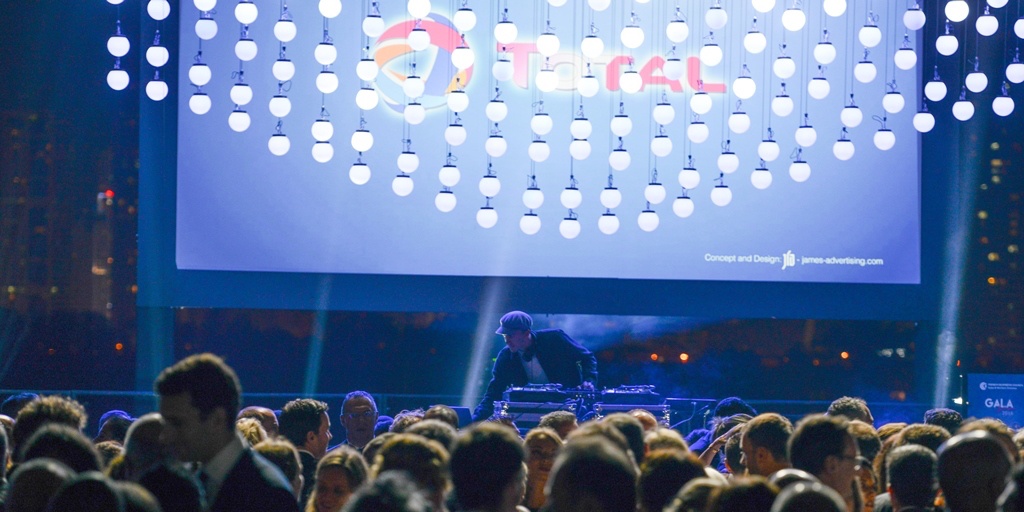A fractal view of event technology

Fractal Systems is a Dubai based company loading up exhibitions, airports, and event venues with samplings of holograms, drones, sliding screens, and soon, robotic arms.
Founded in 2011, Fractal’s goal is to keep innovation up with the demand of technology in the region, said Thierry Louesse, managing director and owner of the company.

“Here in Dubai, you find people who are hungry for new technology, innovation, and ideas,” he told Wamda. “From the beginning we positioned ourself as an innovative technology company.”
While innovative technology companies are expected buzzwords in almost any technology solution provider’s descriptor, Fractal has developed an eclectic portfolio of services in five years. Interactive floors, 360 degree photography, holograms and kinetic motion-sensored lights are currently on display at its offices in Dubai Silicon Oasis.
“When we are working with the customer, we are not selling technology directly,” said Cedric Offredo, Fractal’s head of sales. “We are selling concepts because technology for technology does not mean anything. I could sell you this TV, but if you have nothing to run on this TV, then that’s peanuts.”
The Sliding Screen X-Ray, recently on display at Dubai Sport Innovation Lab, is an example of Fractal’s practice of innovating before conceptualizing. They also hold the patent for this technology.

Before starting Fractal with Renaud Barbier, technology director and co-owner, Louesse was a general manager at IBM and clocked in 20 years of work experience in the Middle East. According to Sinit Thomas, Fractal’s marketing specialist, the company’s beginnings were in designing holograms. They now count telecom operator, Du, and multiple government entities among its repeated clients. Creative agencies looking to revitalize brand activation campaigns are also frequent clients.

In this spirit of constantly innovating, Fractal has partnered with the Rochester Institute of Technology to bring in 25 junior engineers to its workspace to experiment with new technology. The engineers have access to the company’s software building hub as well as its hardware workshop and storage.
Louesse said that the decision cycle for selecting the next technology to develop is very short. And it’s that cycle that brought the robotic arm to Fractal.
According to junior engineer Richard Gomez, the team “saw [the robotic arm] on Youtube, and said ‘Oh this is nice’. Our boss said, ‘this is nice’ and bought it… Then we started developing it.”
Building and purchasing such complex technology is an expensive endeavor. For five years, the company has run on funds out of pocket. Along with the challenge of maintaining cash flow, Fractal faces the same problem as many other startups in the region when it comes to attracting investors.
“We are asking investors to bet on the future, on our capabilities,” Louesse told Wamda. “Here we will buy more easily a Lamborghini of two million dollars because we can see it, feel it, touch it. This is our culture, but this is changing.”
Fractal is among a growing contingent of technology solution providers in the region taking advantage of industry interest in competitive technology display at events. While Fractal is unique in offering its specific set of services, Dubai also hosts others such as Prisme International, Protec, and Pixelbug.

Leave a Reply